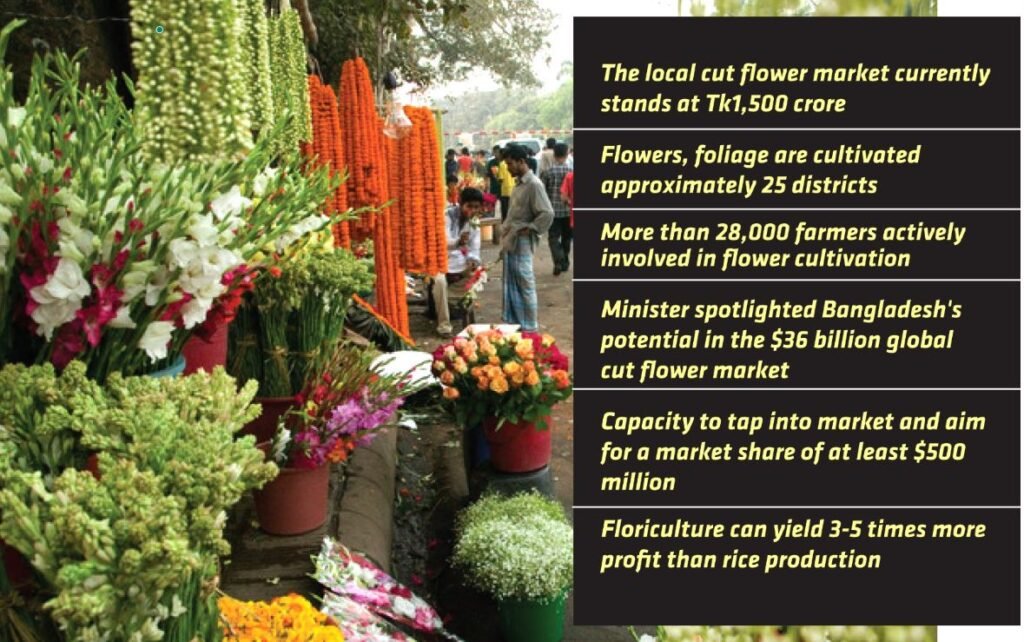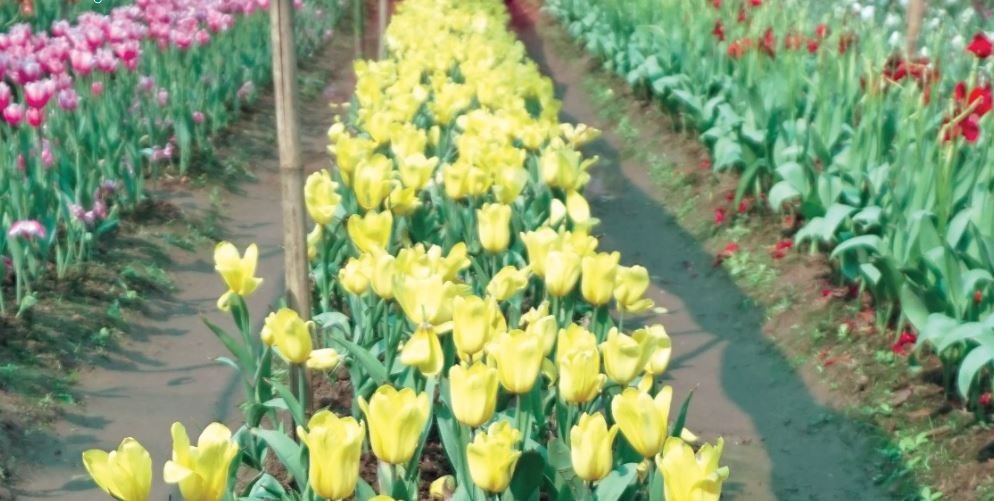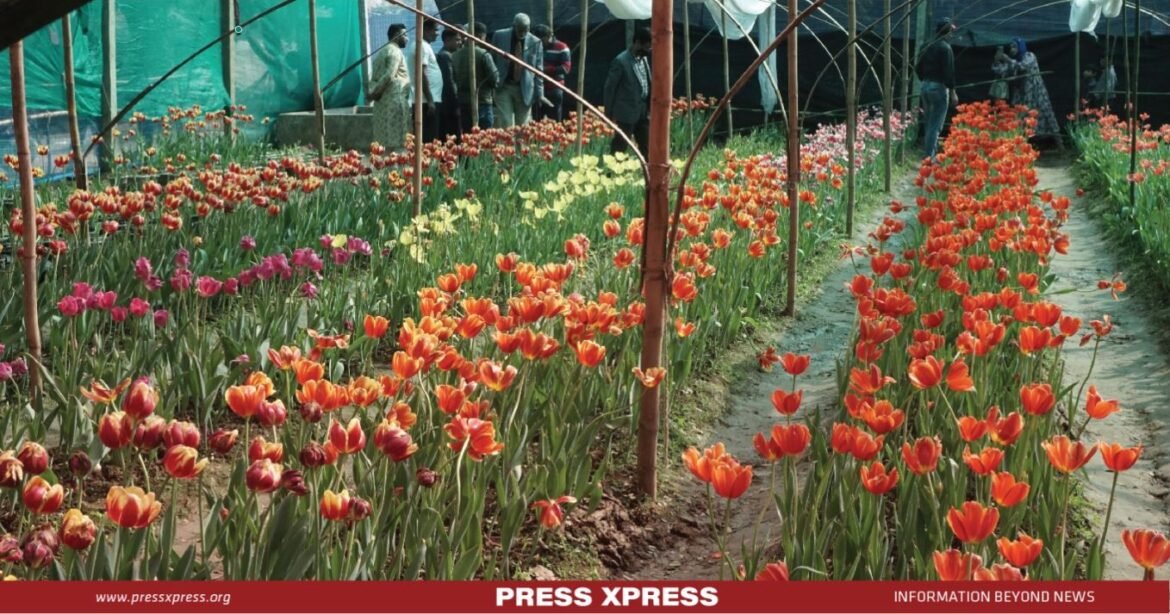Bangladesh has a bright opportunity to tap into the $36 billion global cut flower market, which is currently a very promising sector.
Flowers symbolize beauty and have long been seen as a representation of human taste and aesthetics. In many developing and underdeveloped nations, the floral industry is a significant sector. Flower farming is a vital and lucrative aspect of Bangladesh’s agricultural sector.
On Friday, Agriculture Minister Dr. Muhammad Abdur Razzaque highlighted the potential for Bangladesh to enter the lucrative $36 billion global cut flower market, which is currently showing promise as a flourishing sector.
The minister affirmed, ‘The commercial cultivation of flowers is experiencing a significant uptick, and there exists a substantial global market worth $36 billion for cut flowers. We possess the capacity to tap into this market and aim for a market share of at least $500 million.’
The minister made the comments while inaugurating the wholesale flower market and processing center built by the Department of Agricultural Marketing (DAM) at the Beribadh area near Gabtoli Bus Depot in the capital.
He further emphasized, ‘Our future economic expansion holds great promise, with a significant boost expected from the export of cut flowers. To achieve this, we must pioneer the development of new flower varieties, adopt contemporary cultivation techniques, and expand our market presence.’ Terming the wholesale flower market as momentous in terms of agricultural marketing, the minister highlighted modern and appropriate management of the market.

Flower trader community
At the event, leaders from the flower trading community acknowledged that the local cut flower market currently stands at Tk1,500 crore, providing employment to 1.5 million individuals. They conveyed their gratitude for the establishment of this wholesale market and processing center, acknowledging its potential to facilitate flower exports.
Chaired by Additional Secretary of the Ministry of Agriculture, Ruhul Amin Talukder, the event featured speeches from several distinguished individuals, including Sheikh Md Bokhtiyar, the Executive Chairman of BARC, Md Masud Karim, the Director General of DAM, Tazul Islam Patwari, the Director General of the Department of Agricultural Extension, and Babul Prasad, President of the Dhaka Flower Trader Welfare Society, among others.

Major farming areas
Bangladesh enjoys a distinct economic advantage in flower production due to its tropical climate, well-suited soil and terrain, the availability of affordable labor, and the relatively low capital investment required.
Flowers and foliage are cultivated across approximately 25 districts in Bangladesh, including Jashore, Jhenaidah, Magura, Rangpur, Bogura, Dhaka (Savar), Gazipur, Manikganj, Kushtia, Chuadanga, Satkhira, and Mymensingh.
According to data from the Department of Agricultural Extension (DAE), more than 28,000 farmers are actively involved in flower cultivation.
Commercial flower production commenced in the Jhikargachha upazila of Jashore district in the mid-1980s. With the growing demand for flowers and ornamental plants, the floriculture industry has been gaining popularity among farmers.
A research article titled “Flower Industry in Bangladesh: Exploring Floriculture Potential,” published in the International Journal of Business, Social, and Scientific Research, highlights that floriculture can yield 3-5 times more profit than rice production and 1.5-2 times more profit than vegetable production.
Import of premium flowers
Despite local flower production, Bangladesh still imports premium flowers to meet customer demands. These imported flowers include gladiolus and tuberose from India, chrysanthemums from India, orchids, gerberas, anthuriums, and Thai roses from Thailand, as well as a significant quantity of flowers from China and Indonesia.

Even though these imported flowers come with a higher price tag, they cater to the aesthetic preferences of the upper-class clientele. For instance, each imported tulip costs Tk 129, lilies are priced at Tk 100, and orchids at Tk 120.
Industry insiders indicate that Bangladesh annually imports flowers worth Tk 75 crore. Abul Kalam Azad, a flower trader in Dhaka’s Shahbagh area, points out that imported flowers maintain their aesthetic appeal and freshness for up to 15 days. This longevity is why high-income groups prefer using these flowers for their family and social events.
The export markets
Similarly, there is substantial global demand for locally grown flowers, particularly in the Middle East and Europe. Bangladesh exports flowers such as tuberose and gladiolus to countries like Saudi Arabia, Pakistan, the United Kingdom, Belgium, Canada, Germany, India, Italy, and the UAE.
According to data from the Export Promotion Bureau (EPB), Bangladesh earned $7.65 million in FY 2003-04 and $7.339 million in FY 2004-05 through cut flower exports. However, export earnings have seen a significant decline in recent years, plummeting to $1,530.22 million in FY 2015-16 and a mere $0.02 million in FY 2017-18, as per EPB statistics.
One contributing factor to this drop has been the rising domestic demand. Additionally, Bangladesh employs fertilizer-based cultivation methods, while international customers increasingly prefer organic farming practices.
Sri Babul Prasad, the head of the Bangladesh Flower Society, noted that a lack of experience and technology has hindered the export process. He believes that if Bangladesh can develop technology and innovation, it can diversify its flower varieties, ultimately boosting exports.

Opportunities, challenges in Bangladesh’s Flower Business
Flower being introduced as a business item to the international market by Colombia in the early eighteenth century has attracted many other countries as a means of earning foreign currencies. Flowers entered the Bangladeshi market before 1983 and have since evolved into a thriving domestic business. Research indicates that Bangladesh holds great potential in the flower business and floriculture due to its natural advantages, including fertile soil, favorable climate conditions, and other conducive factors.
However, the country faces challenges in efficiently producing and marketing flowers, both domestically and internationally. These challenges include inadequate infrastructure, subpar packaging, a lack of technical expertise in production and marketing, an inefficient management system, and more. If these issues were addressed or minimized, Bangladesh could have harnessed significant foreign currency earnings, much like India and several other countries.


